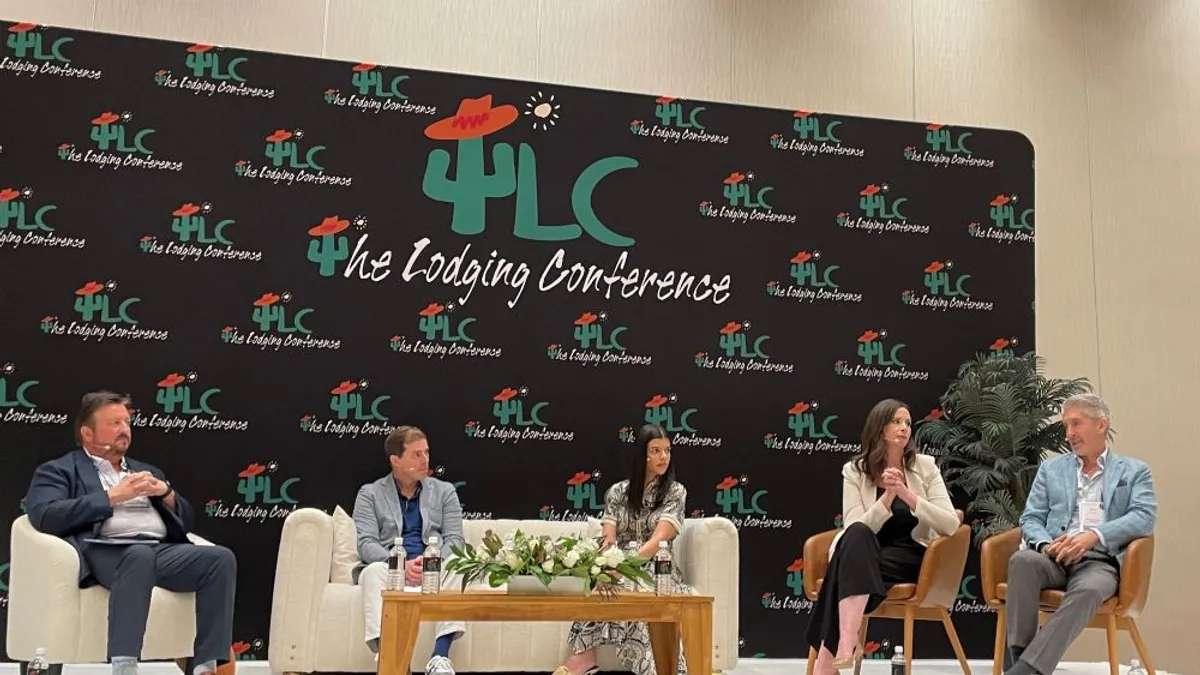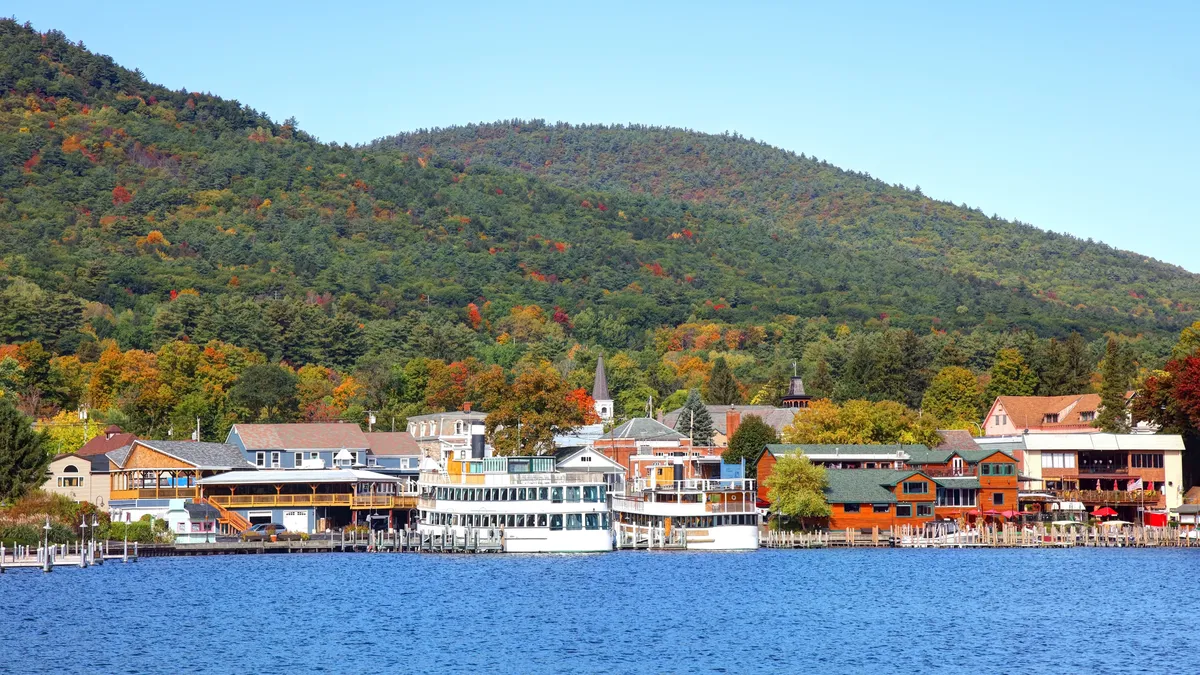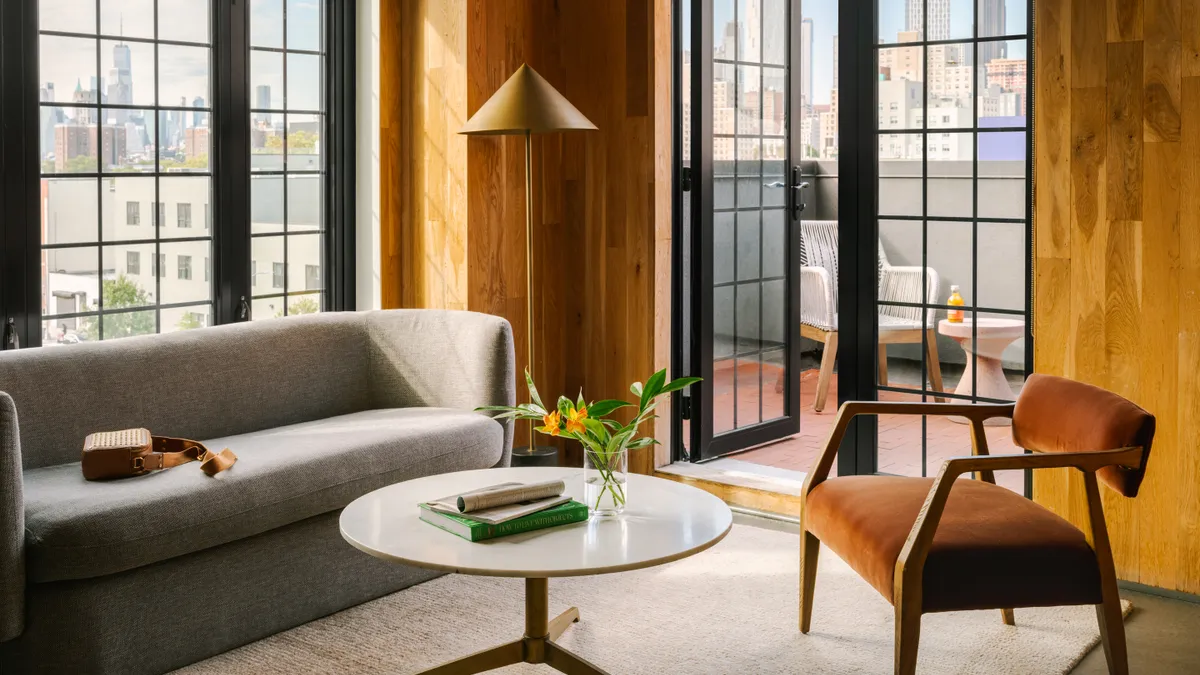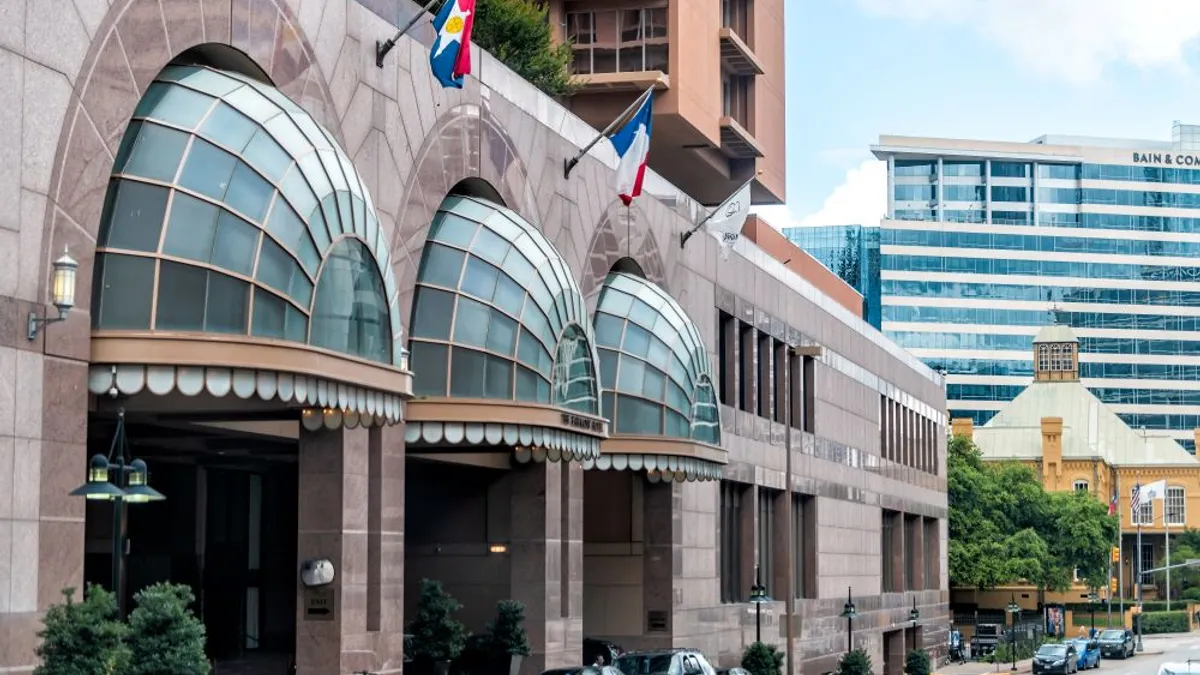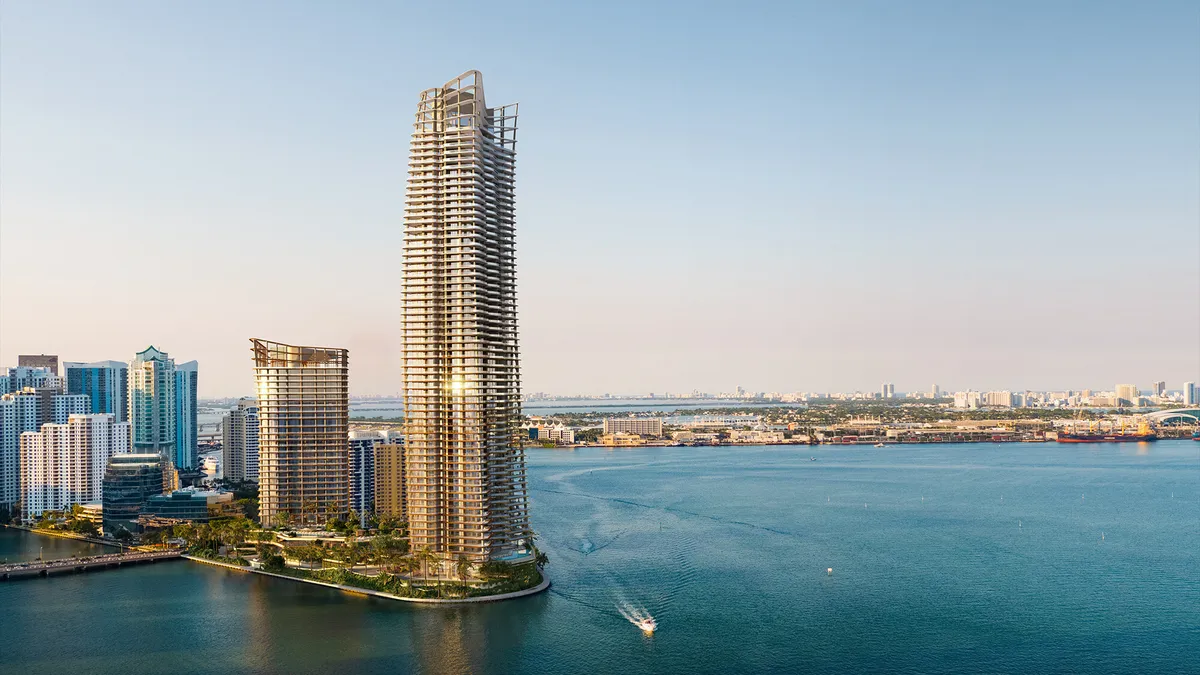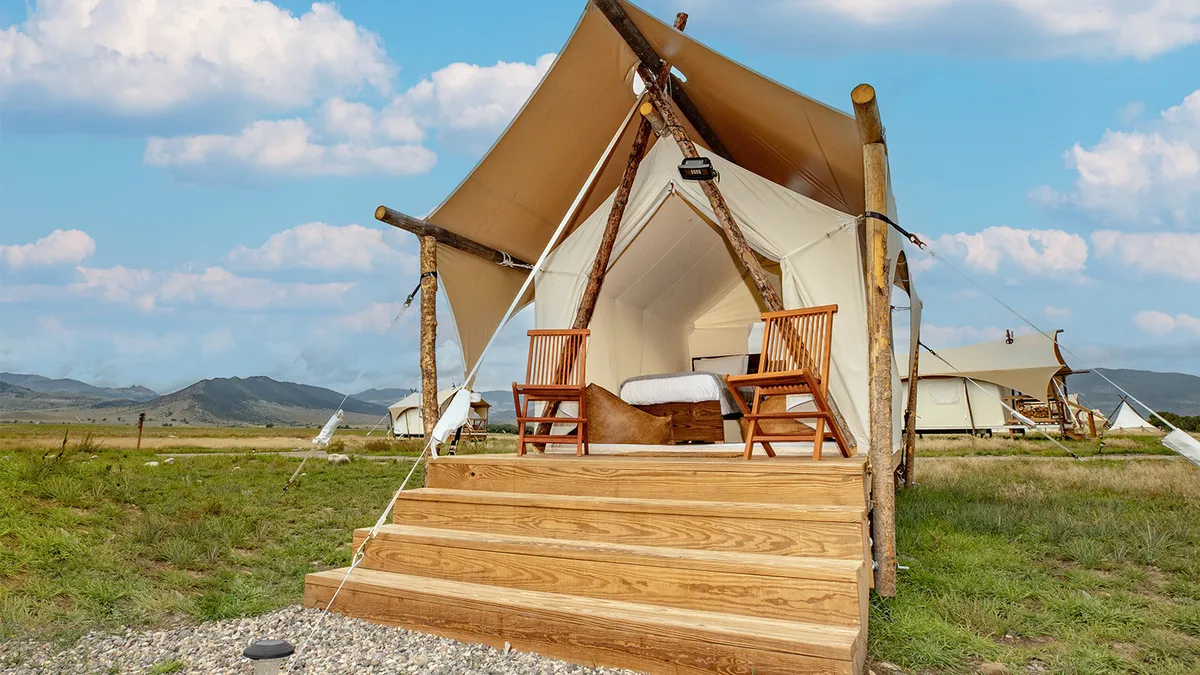Bolstered by changing traveler demand, increasing RevPAR and growing investor appetite, the luxury hotel segment is booming with no signs of slowing down, hospitality industry leaders shared during a panel discussion at The Lodging Conference in Phoenix.
During Tuesday’s “Capitalize on Luxury Demand” session, experts from Marriott International, IHG Hotels & Resorts, Auberge Resorts Collection and Host Hotels & Resorts discussed how luxury segment traveler demographics and demands are changing. They also shared current trends in luxury hotel investment as well as where opportunities lie in the segment for future growth.
The state of luxury
The luxury segment is currently seeing “insatiable demand from consumers,” Erin Green, vice president of development and acquisitions at Auberge Resorts Collection, said during the panel.
Vicki Poulos, head of luxury and lifestyle brands at IHG Hotels & Resorts, added that the consumer base is evolving.
The formalities and the elitism within luxury are on the way out.

Vicki Poulos
head of luxury and lifestyle brands at IHG Hotels & Resorts
A significant portion of high-net-worth individuals “no longer inherit that type of wealth,” Poulos said, adding that these individuals, the majority of whom are millennial, are now “self-made.” The pool of wealthy individuals is growing, she noted, which will continue to boost the luxury hotel sector.
According to Marriott research, global wealth is expected to increase 38% by 2027, and travel spending will likely reflect that growth. Gen Z, specifically, is projected to make up 45% of luxury travel sales by 2025, according to Forbes.
As younger generations take up more of the luxury travel space, it’s increasingly important for hotels to evolve to “capture the next generation of luxury lifestyle travelers,” by “offering something different, experiential, memorable [and] desirable,” said Jenna Jacobson, vice president of luxury and mixed-use development at Marriott International.
Poulos echoed similar sentiments, noting that “the formalities and the elitism within luxury are on the way out.” Rather, the luxury and lifestyle sectors are “absolutely blurring,” she said, as younger generations of travelers care more about design and experiential programming.
Opportunities in experiences
Hotel owners have several opportunities to revamp their luxury properties and offerings, the panelists noted.
Marriott, specifically, is undergoing a multiyear brand evolution for its luxury lifestyle W Hotels brand in North America, with a focus on design that’s representative of its destination and unique activations that engage guests. The brand still offers “classic, anticipatory luxury service,” but in a more approachable way, according to Jacobson.
As part of the brand evolution, Marriott reopened the renovated W Hollywood in California earlier this month with updated food and beverage offerings and gathering spaces.
For IHG, enhanced wellness offerings have been a way to incorporate more experiences on-property, particularly at its Six Senses hotels, Poulos said.
Last month, IHG announced plans to open a Six Senses resort in Pennsylvania in 2028 that will feature 50 miles of trails as well as a 16,000-square-foot Six Senses Spa with indoor and outdoor fitness and meditation classes.
The luxury wellness space’s experiential offerings are expanding beyond exercise and relaxation, too. Also last month, hotelier Sam Nazarian and entrepreneur Tony Robbins launched The Estate Hotels & Residences brand, which will pair luxury hospitality with “longevity centers” focusing on preventive medicine.
Growing investor appetite
Growth in the luxury sector won’t stop with brand launches and enhancements, though. The panelists projected that investment activity will remain strong, with investors now more willing to spend than before.
Real estate investment trusts and institutional investors, which have shied away from luxury assets in the past because they seemed riskier, are stepping up and investing in the segment, Green noted. He added that there have been several recent transactions at a price per key that a few years ago, “I don’t think any of us would have thought possible.”
In August, JLL reported that the total single-asset hotel transaction volume for deals larger than $200 million was at its highest level in eight years.
Host Hotels & Resorts completed two of those deals in recent months. In May, the REIT acquired Turtle Bay Resort on Oahu, Hawaii, for $725 million. Then in July, the company bought 1 Hotel Central Park New York for $265 million.
Bryan Thrush, Host’s vice president of development, design and construction, said during the panel discussion that the REIT’s luxury assets are the company’s top performers.
Host will continue to target hotels in markets with high barriers to supply growth as well as newer properties that require less capital expenditure off the bat, Thrush said.



